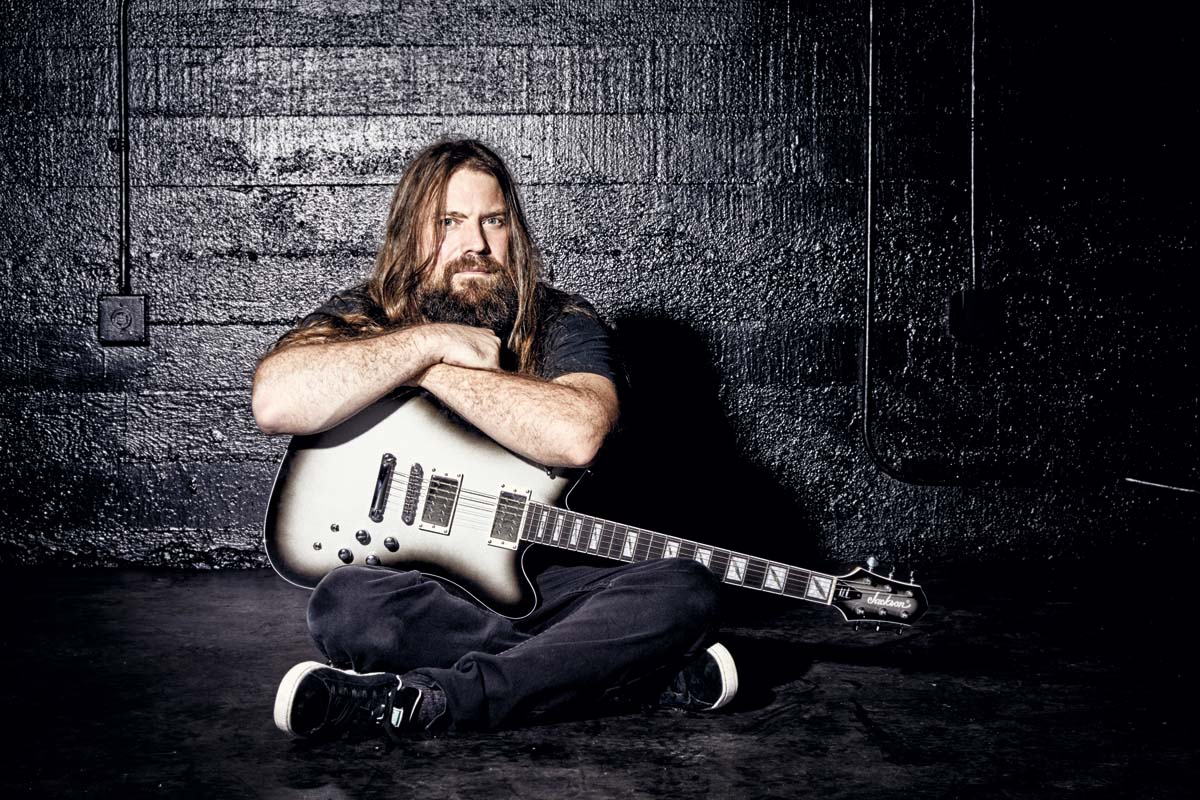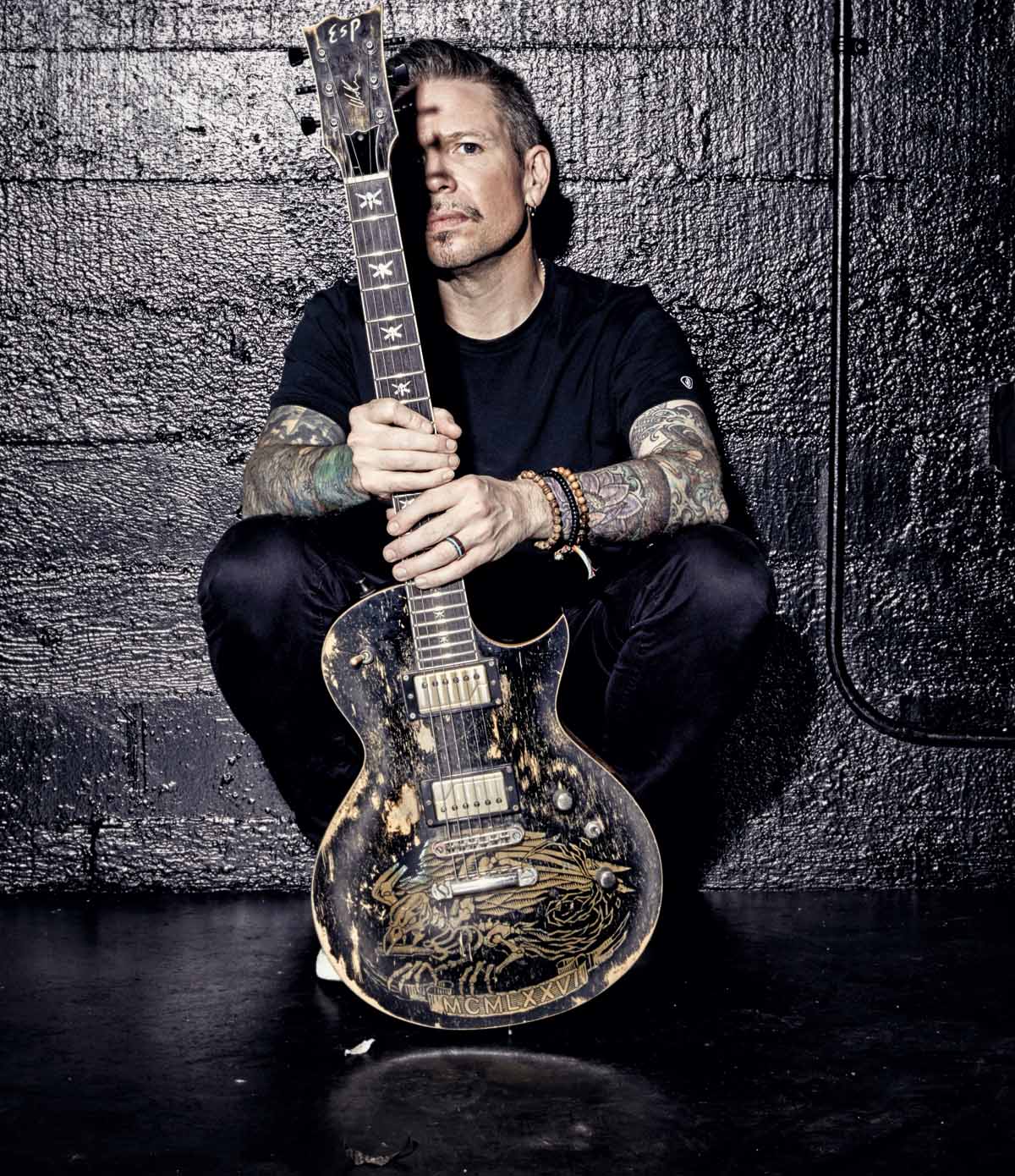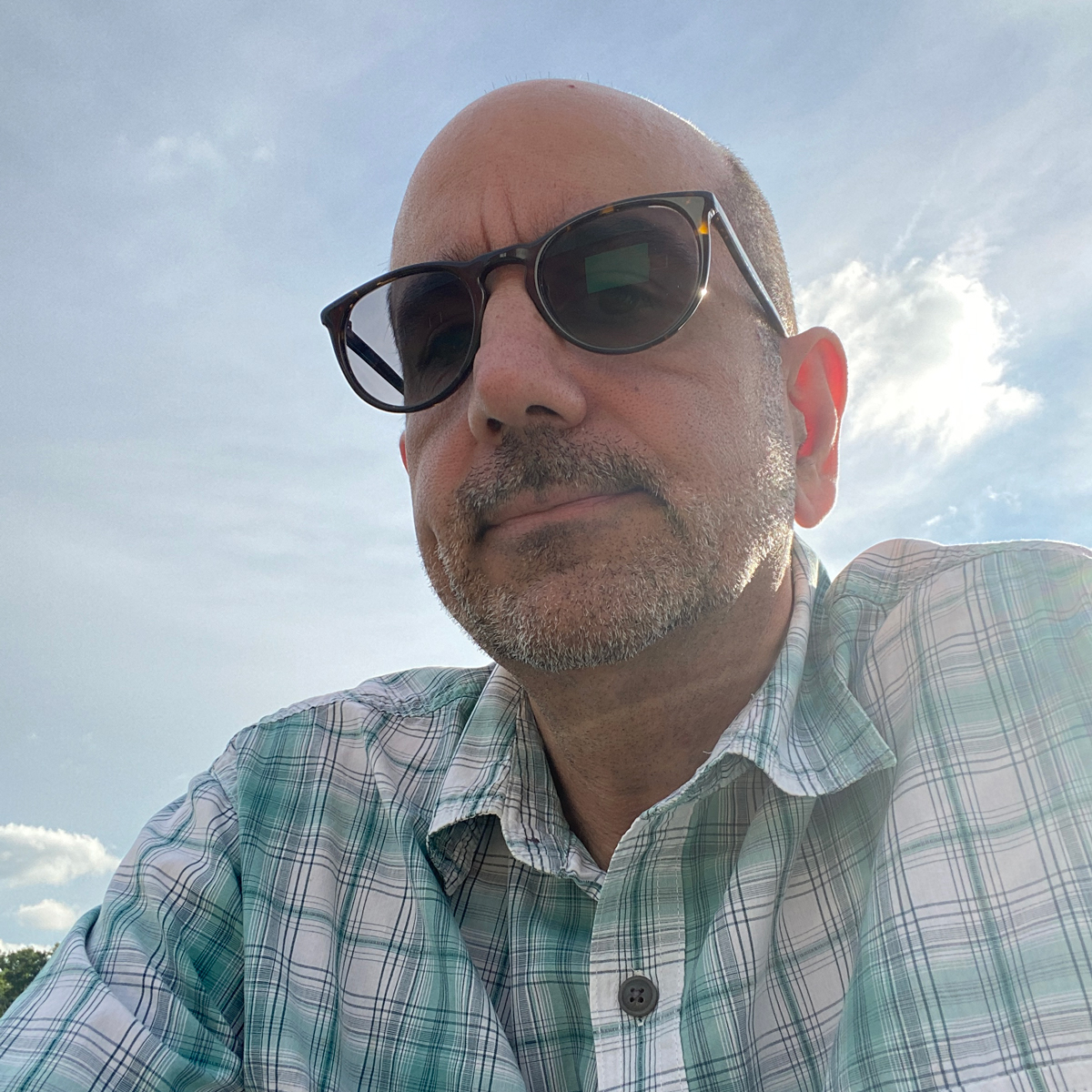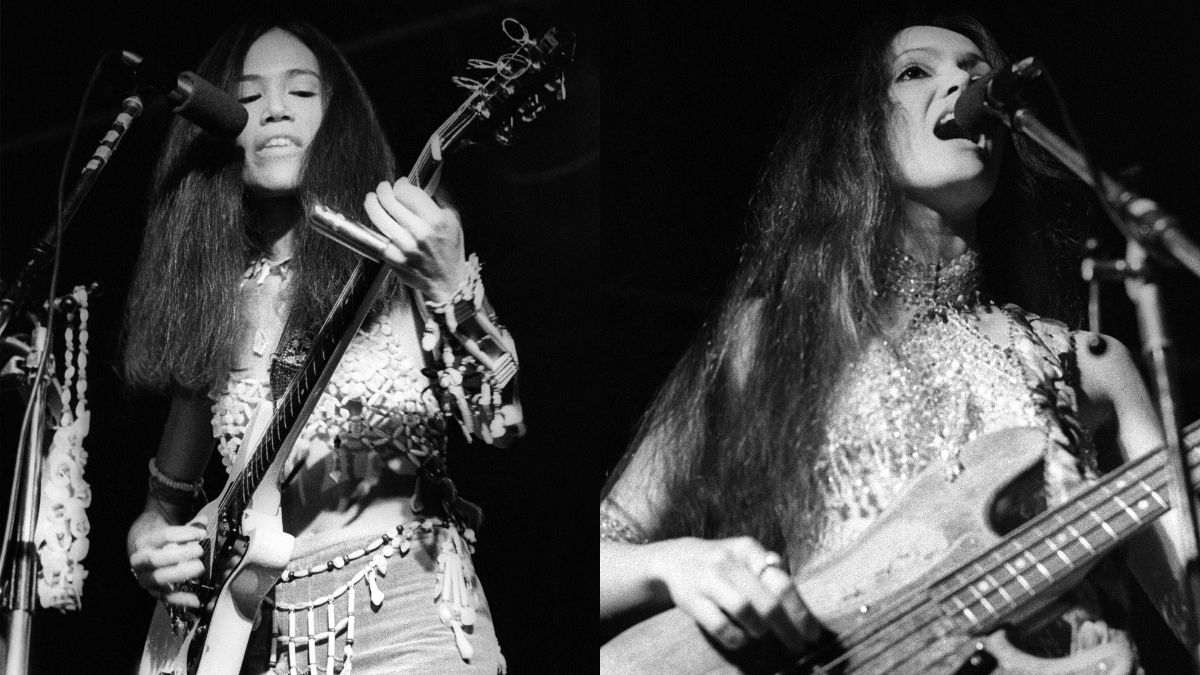Lamb of God's Mark Morton and Willie Adler on creative kinship, staying power, and trading heavyweight riffs
One of the most formidable guitar tandems in metal unpack the story of their explosive new album, Lamb of God
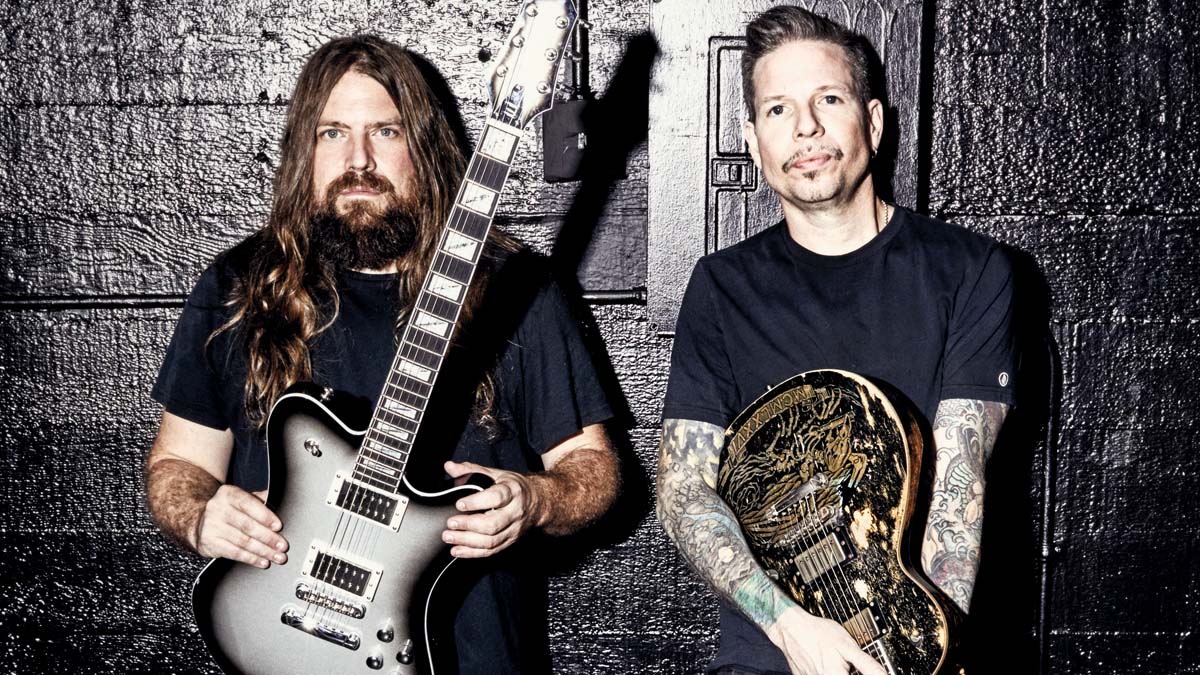
All the latest guitar news, interviews, lessons, reviews, deals and more, direct to your inbox!
You are now subscribed
Your newsletter sign-up was successful
2020 was poised to be a banner year for Lamb of God. The reigning thrash metal kings - particularly true now that Slayer are no longer active - had put the finishing touches on their self-titled eighth studio album, the first to feature Art Cruz in place of longtime drummer Chris Adler, and had a rigorous touring schedule, including a still-scheduled mammoth trek alongside Megadeth, Trivium and In Flames.
Guitarist Mark Morton had been busy for the past year or so with a pair of solo releases - last year’s Anesthetic full-length and a five-song, mostly acoustic EP titled Ether, released this past January - and tour dates in support of his solo endeavors.
Then March came along, and the world came to a screeching halt - and that halt included the postponement of Lamb of God’s UK/European spring tour.
There’s a new, excited spirit in the band right now
Mark Morton
It also led to the postponement of the new album’s release date. Originally slated to drop in early May, Lamb of God is now set for a June 19 release.
“We appreciate your patience during these times,” the band said in an April 20 statement. “A global pandemic is not something people in the music industry usually take into account when scheduling album releases, but as you know, this thing has affected everyone across the board, and we are no exception... Wash your damn hands, let us know what you think of the new tunes, and see you on the road sometime!”
Luckily, the band has already released a handful of tunes from the new disc, and they hint at an album the Richmond, Virginia, five-piece can certainly be proud of. Lamb of God is a 10-song masterwork of infinitely precise and intricate riffage, crushing breakdowns and production work that rivals any of the top albums in recent memory.
The Type O Negative-esque intro that leads into the opening track, Memento Mori - which racked up 3.6 million views on YouTube in its first five weeks - is about as subdued as this record gets.
All the latest guitar news, interviews, lessons, reviews, deals and more, direct to your inbox!
After that minute and 40 seconds, the pummeling begins and doesn’t let up until the closer, On the Hook. Songs like Checkmate, Gears and New Colossal Hate are relentless and dizzying yet crisp and clear, with sing-along hooks and choruses.
It’s all uncomfortably comforting in a time of great discomfort - the product of a band clearly firing on all cylinders even after more than a quarter century in existence.
“There’s a new, excited spirit in the band right now,” says Morton, “especially with Art and watching him really start to bloom within our organization. We felt that energy throughout the entire process.”
Willie Adler, Morton’s longtime guitar partner, concurs that Lamb of God is in a particularly good place right now. “For almost the first time ever, it feels like it’s all cohesive and we’re all on the same page - and none of us mind being in the same room with each other; in fact, we look forward to it now.”
Lamb of God have certainly seen their share of ups and downs in their 25-plus years in existence, and Morton and Adler were more than willing to share some examples during a recent chat with Guitar World.
It’s been five years since the release of your last full-length, VII: Sturm and Drang. How do you know when the time is right to start working on a new album?
MARK MORTON: I think there are times that are both good and not-so-good to work on new material as a band. But I can’t say that those things are always the same, if that makes sense. With this album, in terms of the pre-production, we did it a little differently than we have in the past, mainly because of the touring we’d been doing.
This time, Willie and I would block out a week at a time here and there in between tour legs to hop in the studio and just work on demos of ideas we’d had. We’d do that and then a few months later we’d find another week and go back and do the same thing - so it was a little more spread out this time.
And I really liked that process because I felt like it gave us time to sit with some of the ideas and let them marinate a little bit. It was nice to sit with things a little bit longer rather than having to commit to something quickly.
WILLIE ADLER: After the first one of those writing sessions, we went up to this really cool little studio in Maine called Halo, and we went over all of the material we had, and that gave us a sense of what we were looking at in terms of a new album - where we were heading with the material.
Doing it that way allowed us to be a little more focused in terms of our writing once we were back home and working individually - like, okay, this is what we have and this is what we need, that kind of thing. So as far as this record is concerned, I would say the body and soul of it started to take shape on one of those early sessions up in Maine.
The whole studio experience was really super organic - from getting the guitar tones to recording the tunes
Willie Adler
Even though you each write individually, you have never taken songwriting credits on your songs. Are there songs in the catalog that you feel more ownership of compared to others?
ADLER: Sure - internally we view it that way. When we’re playing or arranging or whatever, we know what might be a Mark song or a Willie song. But in terms of the grand perception, no, it’s just a Lamb of God song.
And I would think that somebody who really listens to Lamb of God - and kind of has their pulse on how we write - would probably be able to pick out a Willie song or a Mark song.
MORTON: There are definitely songs on every album that Willie or I have 'brought in' or 'directed', to use our terminology. There are times where it’s also a completely collaborative experience, like if Randy hums a chord progression to us and we’ll translate it to fit with what he was thinking - in that case, he would have written the guitar part.
So there’s every type of manifestation of that collaborative effort when we write songs. Having said that, the last couple of albums have actually been very collaborative between Willie and me specifically.
Before that, maybe about midway through our discography, we had definitely gotten into a groove where we just started having Mark songs and Willie songs - where all the riffs on this song would be from Willie and all the riffs on that song would be from me.
People are getting used to hearing everything 100 percent quantized, 100 percent edited, 100 percent sampled - and that’s cool, if you like video games. But we’re a band - we play music
Mark Morton
On the last album in particular we kind of got onto this thing where we were going to deliberately start mixing those up a little bit to get more to that original, As the Palaces Burn-era kind of vibe; maybe not in the sound of the songs, but the process of writing. And we’re still on that path. We’re very quick to pair our riffs together because we have very unique, specific styles, and I think they mesh well together.
What’s your take on recording together in the studio versus individually and using technology to transfer tracks?
MORTON: I remember not too long ago everyone was saying that all the studios were going to go away because you could just do everything at home on laptops, and that will be the wave of the future - but it’s not, because there is an element of creating art and music that’s just inextricably human - to be creative and collaborative with somebody, etc.
And I have certainly been involved in some situations where I was able to create music and work on projects with someone even if we couldn’t be in the same room - but the ideal situation is to be in the same room because there are just some things that can’t be communicated via email or text or a phone call.
So with this album, we were very much together during the recording process - everyone in the studio together working on their parts, listening to what each other was doing very enthusiastically, and it was a lot of fun. We were just a band in every sense of the word during the making of this album, and I don’t know if that’s rare or not these days, but it feels right for us.
ADLER: I agree, the whole studio experience was really super organic - from getting the guitar tones to recording the tunes, it all just kind of flowed.
And even if we record the guitar parts for a whole song ourselves, it’s important for us to be in the same room with each other, or in the same building during the process - just having each other there or around is important, having each other’s backs. There’s definitely something to be said for that.
Plus, this way we can both listen back to a tune at the same time, or for the first time once it’s fully recorded, and we can both feel that excitement at the same time. And that would definitely be lost if we were doing it all individually. Sure, we could do it that way, but I wouldn’t want to.
It’s almost as if you’re intentionally trying to hold onto an old-school vibe when it comes to recording.
MORTON: There are definitely innovations that we have today that weren’t there when we were making our first few albums. So part of the reason we like to do things the way we do and keep it kind of old-school is just because we’ve been around for so long. [Laughs]
Using technology to do everything for us just doesn’t appeal to me. It’s getting to the point now where people hear drums that aren’t all programmed or sampled and they think they don’t sound as good, but it’s because they sound like real drums!
People are getting used to hearing everything 100 percent quantized, 100 percent edited, 100 percent sampled - and that’s cool, if you like video games. But we’re a band - we play music and we put mics in front of our shit and record it that way.
I have folders and folders of songs that got pushed to the side for whatever reason — they’re great, but weren’t quite right for Lamb
Willie Adler
Mark, you’ve released quite a bit of solo material recently - first your 2019 album, Anesthetic, and then this year’s EP, Ether - and touring to support the records. How tough have you found it, to juggle all of that while making a new Lamb of God album?
MORTON: Well, first of all, Lamb of God is definitely my priority, and I really haven’t had anything collide with anything else, so that’s been good. And creatively, the projects are just so different, and that really helps me keep them separate.
On the Anesthetic record, which was my full-length solo album, there were a couple songs that were kind of Lamb of God-ish, but for the most part, that album was kind of rock and blues-oriented. So, creatively, the projects are very different, and there wasn’t much of a blur between them in terms of my writing or anything like that.
And I usually know my Lamb schedule pretty well in advance, so anything that I do with the solo project, be it recording sessions or writing sessions or touring, I’m pretty much putting them in those open windows to make sure they don’t conflict with anything Lamb is doing.
The 2020 EP, Ether, features more acoustic content than we are used to hearing from you, Mark. Does playing acoustically bring you back to your early days of playing guitar?
MORTON: I have always played fingerpicked acoustic and slide and rock songs and stuff like that, I just never really had the opportunity to release that stuff - I never had a destination for those song ideas.
I’ve written songs for other people, but I’ve never really done anything with my name on it that wasn’t metal, so in that sense it’s very new for the fans, but for me it’s been there all along. When I come home and play guitar for fun, I mostly play blues-rock.
When I jam here with my friends around town and we’re in someone’s basement, we’re probably playing rock songs. That’s just the kind of player I’ve always been.
But I also love metal and think I’m pretty good at it, and I’m really, really lucky to have a place to do that and a career in it. And I’m really fortunate that now people are interested in checking out the other side of what I do too.
Willie, do you ever feel that you want to play music with other people or play a different style of music?
ADLER: Sure, though not in necessarily the same way that Mark does. If I’m playing guitar, it’s definitely going to be Lamb of God stuff. It’s just the way it’s always been with me - I’ve pretty much just always played metal, and that’s what I play when I play guitar and when I write songs. Everything I write, I pretty much write for Lamb.
I love the process, I love creating music, I love other people’s ideas and working with musicians that I respect and admire, and any chance I get to do more of that, I’m going to take
Mark Morton
But I do have folders and folders of songs that just kind of got pushed to the side for whatever reason - they’re great, but weren’t quite right for Lamb, or just not quite Lamb quality. So there’s really no other reason why I don’t do other things - it’s just because I want to use all my best shit for Lamb.
MORTON: I still feel that same excitement about writing music with my brothers in Lamb of God, but I love playing with others too - I love the process, I love creating music, I love other people’s ideas and working with musicians that I respect and admire, and any chance I get to do more of that, I’m going to take.
Lamb of God had a very busy year of touring planned before the worldwide lockdown. Before your spring UK/Europe dates were postponed, were you excited about the thought of being on the road for so long?
MORTON: 'Excited' is a broad term. [Laughs] When you look at something like the tour schedule we had before all this, I was definitely excited that we still have these opportunities presented to us at this stage of our career.
It’s certainly been a long time since we were the new, up-and-coming band - we now have full, card-carrying veteran-band status, and I think it’s an honor to be able to have achieved that.
There are a lot of people that we came up with in the mid-'90s and early 2000s that aren’t in their bands anymore or have moved on to other things, and that’s fine - but for us to still have the opportunity to be one of the biggest heavy metal bands in the world this far into our career, I think is a real honor.
I will always remember the catering on the Metallica tour. That shit was crazy. They had ice sculptures in the catering room and chocolate fountains!
Willie Adler
I’m grateful to have work, grateful to have the type of touring opportunities we have - the opportunity to go out and support this record, which I think is one of our best. Was I excited about not being home for eight weeks in a row? No. Was I excited about the possibility of being away for two months and not seeing my daughter? Hell no.
Was I excited about public toilets and planes, trains and automobiles for most of the year? No. I wasn’t excited about those things one bit. But that’s just what comes with all of this, and I’m excited to still be seated at the table - to be part of the conversation and still be relevant both musically and as a touring act.
ADLER: The older I get the harder it is to imagine being away for that long, but at the same time I’m grateful for the fact that I still have work. People still like my band and are still listening to my music. So I would feel really shitty complaining about that. The upcoming schedule was daunt-ing for sure, and to know that we were going to be gone for that long and all that - but it’s still great to be busy.
Is there a tour that stands out for you as being particularly memorable?
ADLER: I will always remember the catering on the Metallica tour [2008–2010]. [Laughs] That shit was crazy. They had ice sculptures in the catering room and chocolate fountains and things like that.
But as far as the performances go, and the way that I felt about the shows, I would have to say that both of the Slipknot tours [2005 and 2015] were way up there. I felt strong about those shows and our performances and what we pulled off, and I always look back on those tours very fondly.
Lamb of God seems to be in a really good place these days, with the new album and lineup that’s been so brilliantly rounded out by the addition of Art Cruz. But it hasn’t always been like that, has it?
MORTON: It certainly hasn’t been all roses for us, that’s for sure. We’ve been through some really scary times, some really dark times, heartbreaking and confusing times - both individually and as a band. A lot of things that would have broken other bands up, for sure.
And I think that’s why it feels so good to be where we are now as a band, because we’re still excited about what we have to say creatively, we still feel like we have momentum as a band, we’re all in good places personally and as a group internally.
The vibe and the morale in the band is just really good right now. So it’s definitely something to celebrate, considering what we’ve been through to get here. There were always things about it to enjoy, but I think right now it’s more fun than it has been in quite some time, and you can hear that and feel that in the new album.
ADLER: One hundred percent, there have been some rough times for this band. And it can even be said, what are we gonna do without the turmoil? Where’s the angst going to come from without all the drama? But I am absolutely super-stoked on where we are as a band right now.
Willie, your signature ESP Warbird guitar being stolen out of the back of a truck in Phoenix last summer probably qualifies as a dark time for you.
ADLER: Yeah, and it still hurts. I was just mad at everyone when that happened - I was mad at my tech, I was mad at the venue [Ak-Chin Pavilion] that was supposed to be this secure location - like, we’re coming here to do a show for you and your city, and this is what happens?
And of course, there are bad apples in every bunch so I can’t just blanket-blame this particular venue. But it was super-violating. And still, no one knows where the fucking guitar is. I’ve made a plea - you know, no questions asked, just drop off the guitar somewhere safe, that’s it.
Even before I started playing, being in the presence of an electric guitar was like being in the presence of god or something - I just thought it was the most amazing thing
Mark Morton
This guitar, which I had only gotten a few months before and done some work on it - it was going to be my main touring guitar - was deep in the nose of the semi, and these guys just snuck in and took it. It wasn’t like some kind of crazy smash and grab.
I could almost understand if it had been something near the back of the truck, like dudes ran in and ran out, trying not to get caught. But this was all the way at the nose. And the video shows them waiting for like three hours, waiting for security to leave, waiting for the right time.
You can’t see their faces, but you can see them kinda creeping, hiding in the back of the truck waiting, then you see security go by, and then you see them dip out. They knew exactly what to grab, too - like, they just took the most expensive shit, and even had to move cases out of the way to get to it. It’s crazy.
- Lamb of God is out June 19 via Nuclear Blast Records.
As a teenager, Jeff Kitts began his career in the mid ’80s as editor of an underground heavy metal fanzine in the bedroom of his parents’ house. From there he went on to write for countless rock and metal magazines around the world – including Circus, Hit Parader, Metal Maniacs, Rock Power and others – and in 1992 began working as an assistant editor at Guitar World. During his 27 years at Guitar World, Jeff served in multiple editorial capacities, including managing editor and executive editor before finally departing as editorial director in 2018. Jeff has authored several books and continues to write for Guitar World and other publications and teaches English full time in New Jersey. His first (and still favorite) guitar was a black Ibanez RG550.
